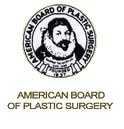Demand for cosmetic plastic surgery continues to increase. Last year, Americans spent over $11 billion on 11 million cosmetic procedures, a 50% increase over the number performed in 2000. While TV shows like Extreme Makeover or Dr. 90210 always show great results, cosmetic plastic surgery is not without risk. After all, surgery is surgery.
The most common dangers or ‘complications’ are numbness, seroma, and poor healing (necrosis). Temporary numbness or loss of feeling at the site of the incisions is common in facelifts and tummy tucks, although it is rarely permanent. Seroma is a collection of watery body fluids that occurs most often in tummy tucks and usually a preventative measure, such as inserting a drain during surgery, is often done. Some tissue death from surgical handling, known as necrosis, may occur when long incisions are made on the body and the skin is widely undermined. This may result in incisions coming apart as the skin struggles to heal the cut edges. Your risks increase significantly for that problem if you are a smoker. That’s because smoking affects blood supply to the tissue, furthering the injury due to the surgery. While everyone worries about infection, these are fairly rare in plastic surgery patients, since most are healthy to begin with.
The single best way to lessen the likelihood that these problems may occur is to have a competent surgeon doing your procedure in the right type of setting or location. This can be done by:

organization that certifies competency in all areas of plastic surgery. You can
check our your surgeon’s standing with the American Board of Plastic Surgery,
based in Philadelphia.
– Make certain your surgeon has the necessary experience to perform the procedures
you want. This can be done by asking for their before and after surgery examples,
given a name(s) of patients that have had the procedure in the past 30 days so you
can speak to one of them, and ask questions until you are satisfied. If you meet
resistance or delays on any of these requests, find another surgeon!
– Make certain that your surgery is going to be performed in a hospital or surgery
center that is a fully accredited facility. For hospitals, this is the JCAH (Joint
Commission on Accreditation for Health Care Organizations). For surgery centers, this is the AAASC (American Association of Ambulatory Surgery Centers).
These three simple and easily verifiable qualifications will help ensure that you have the best chance for a good plastic surgery result.
Dr Barry Eppley
Indianapolis, Indiana


